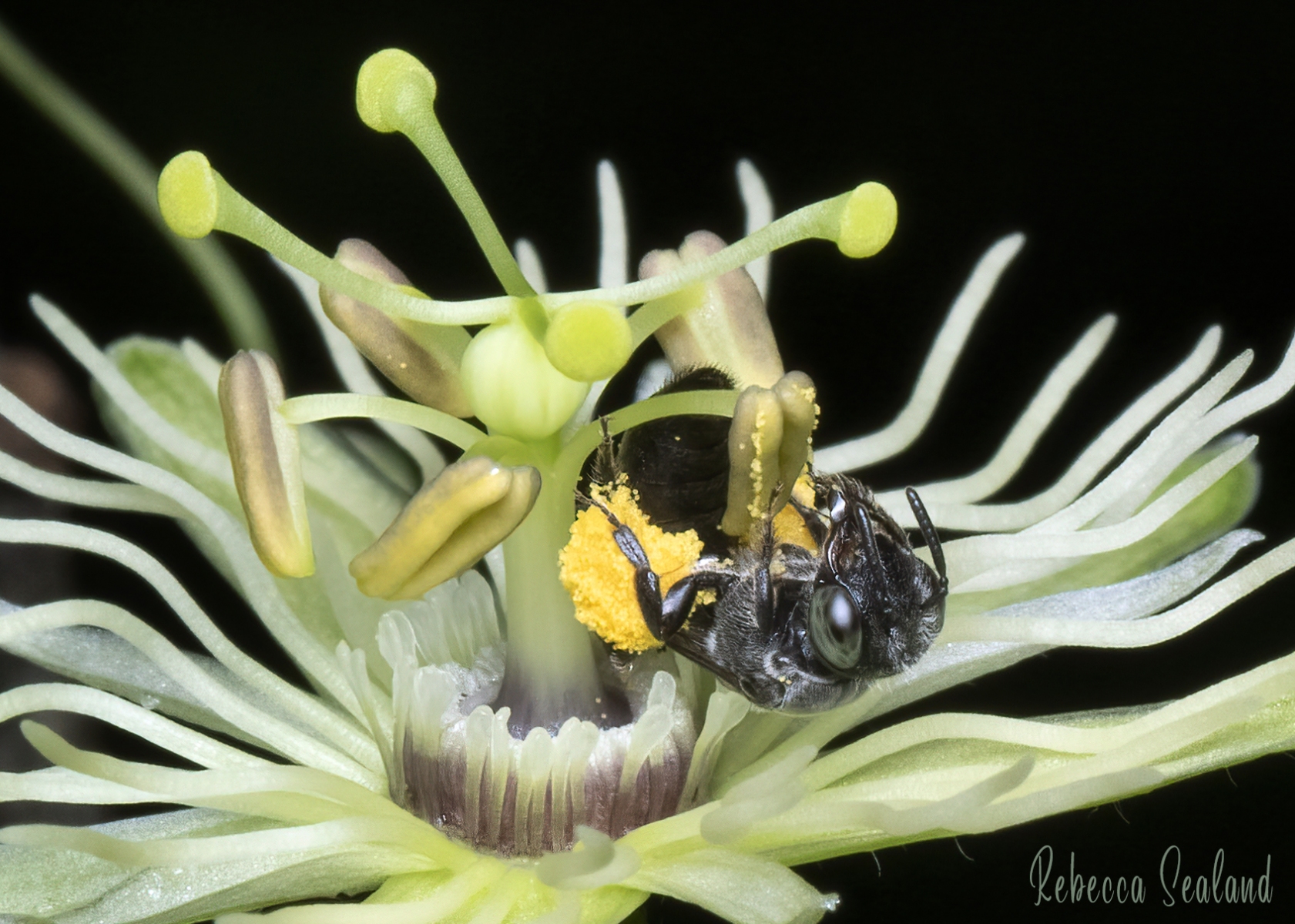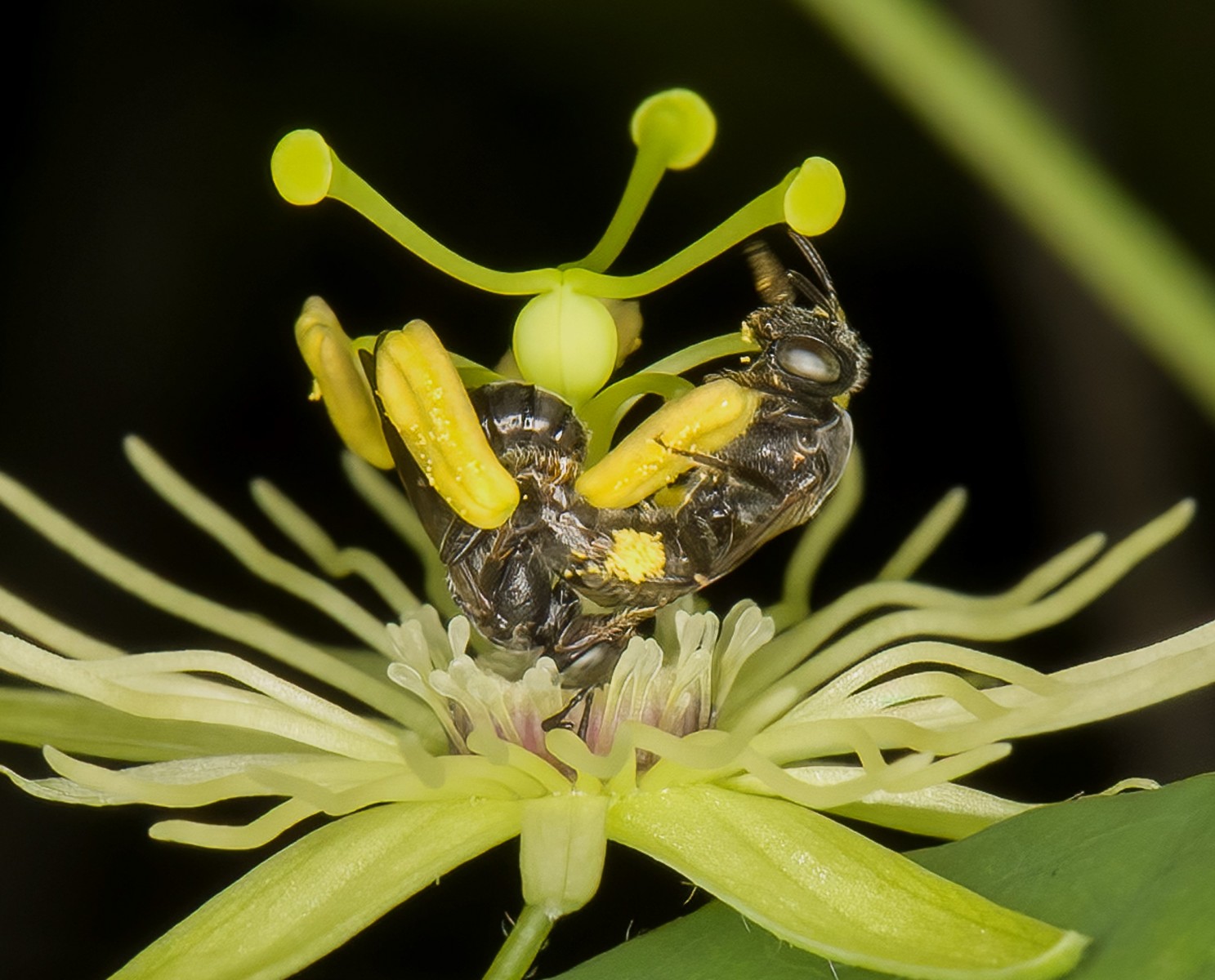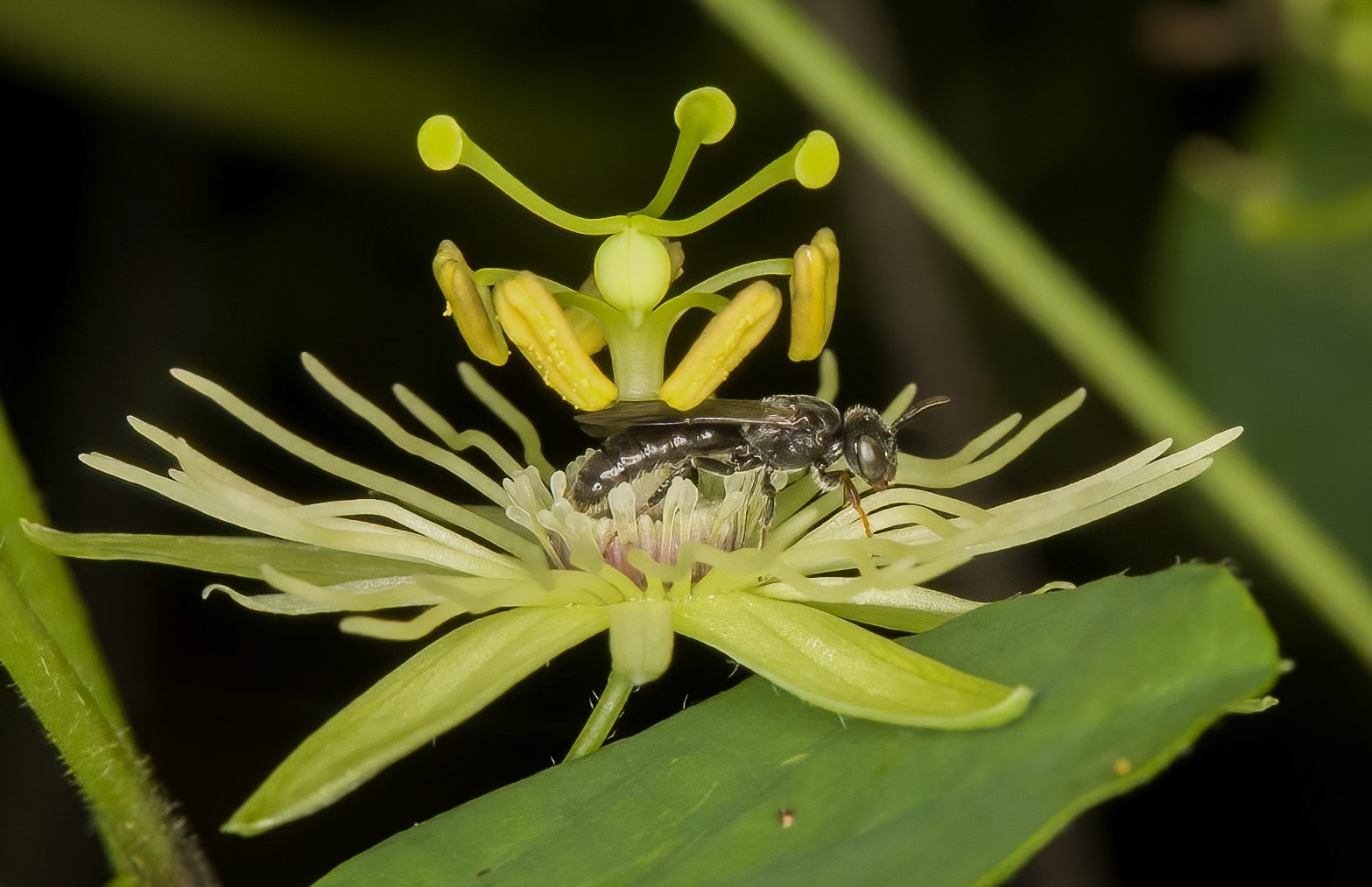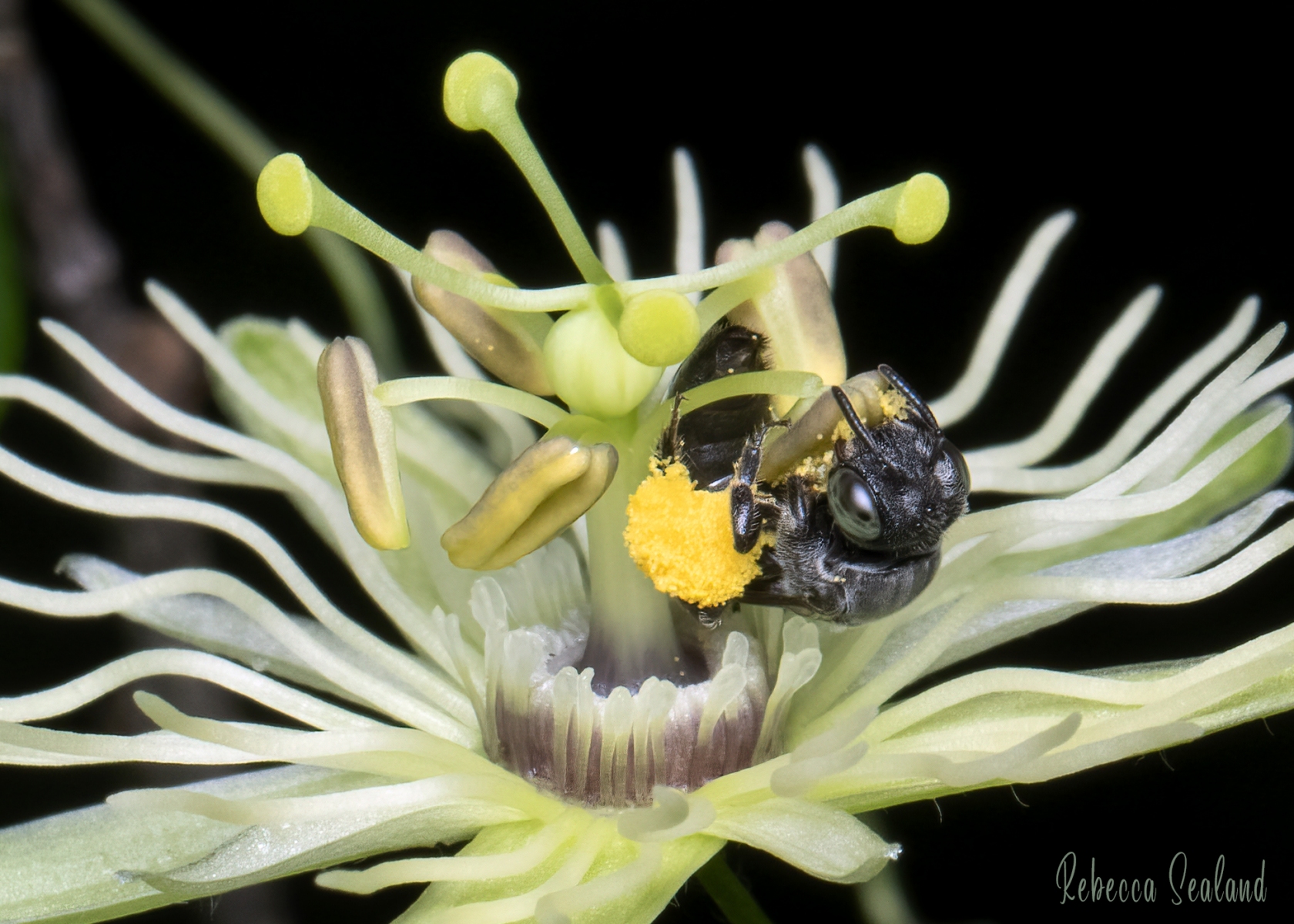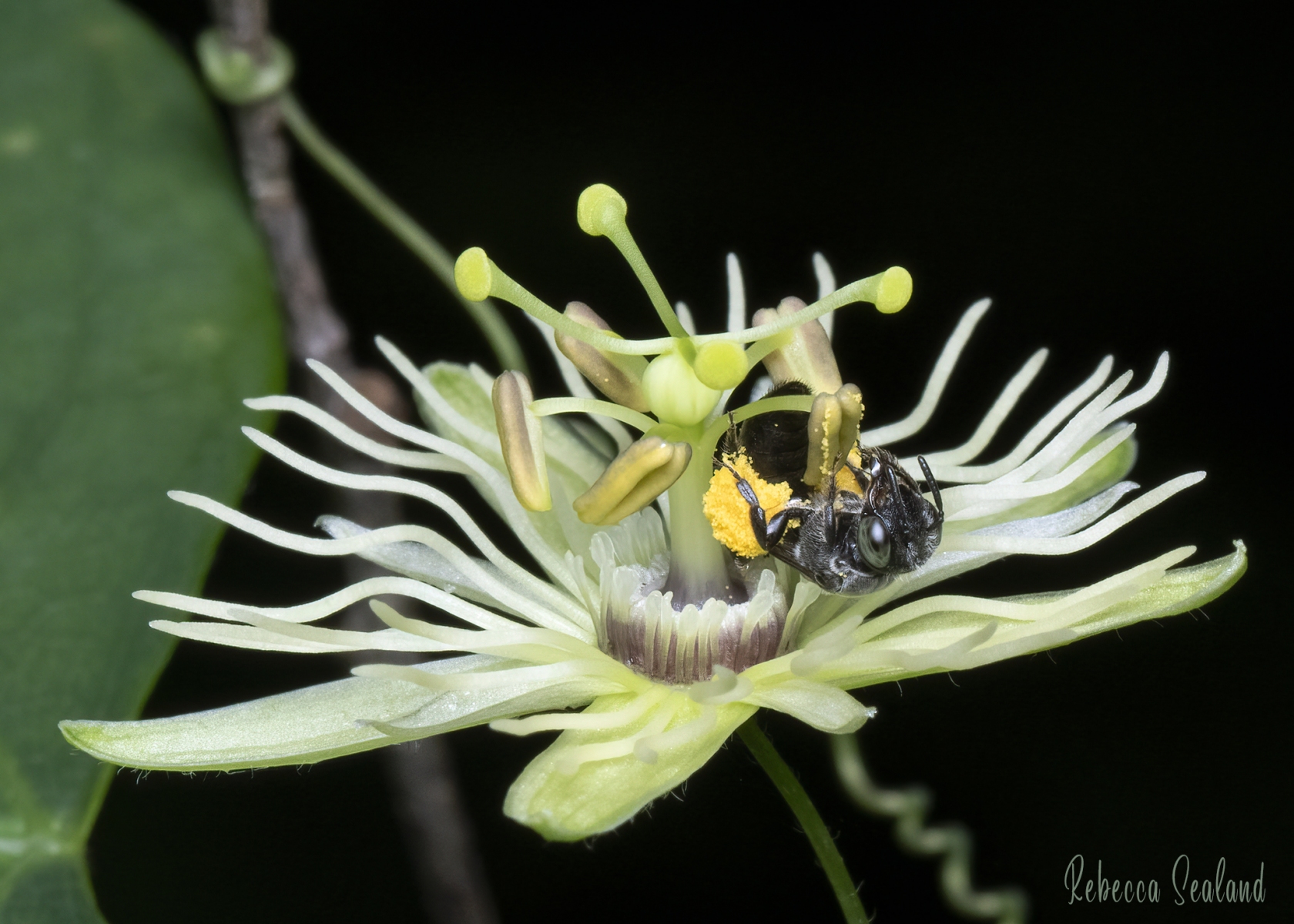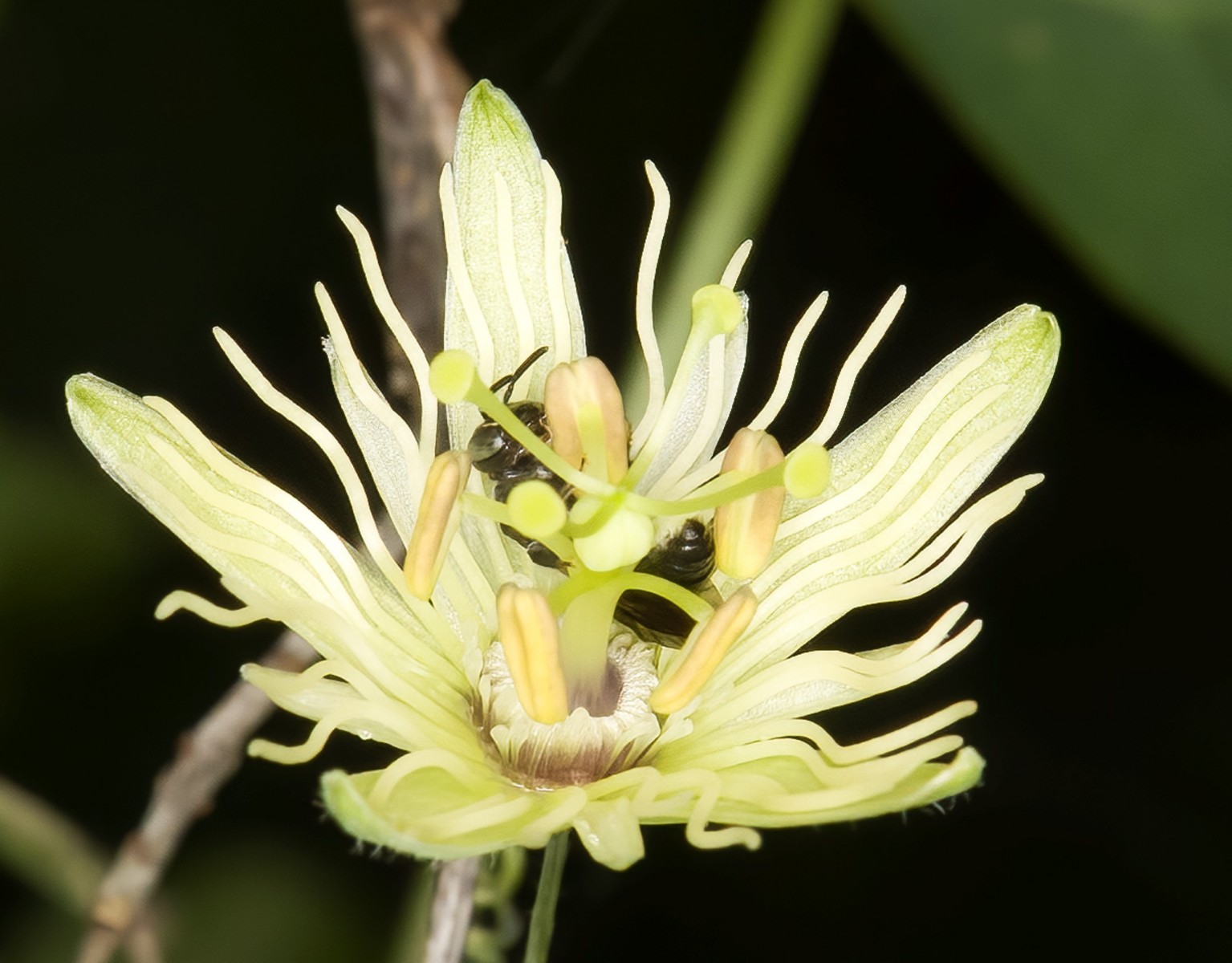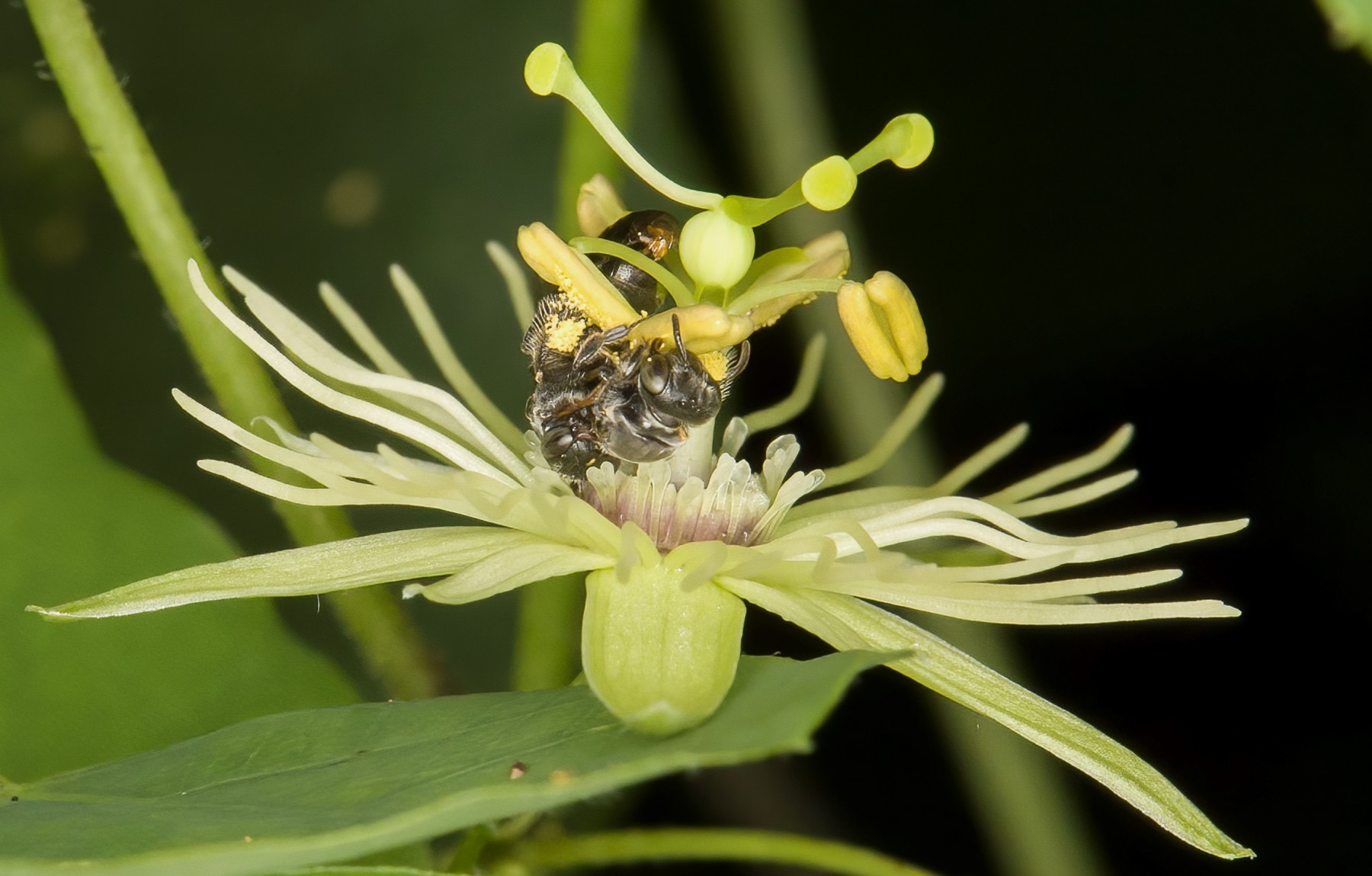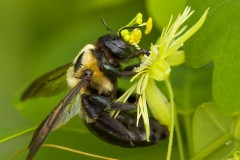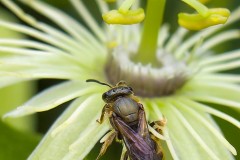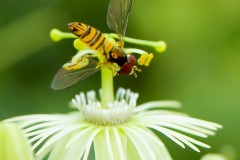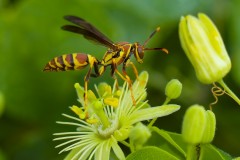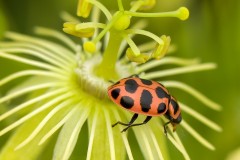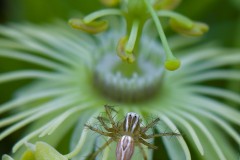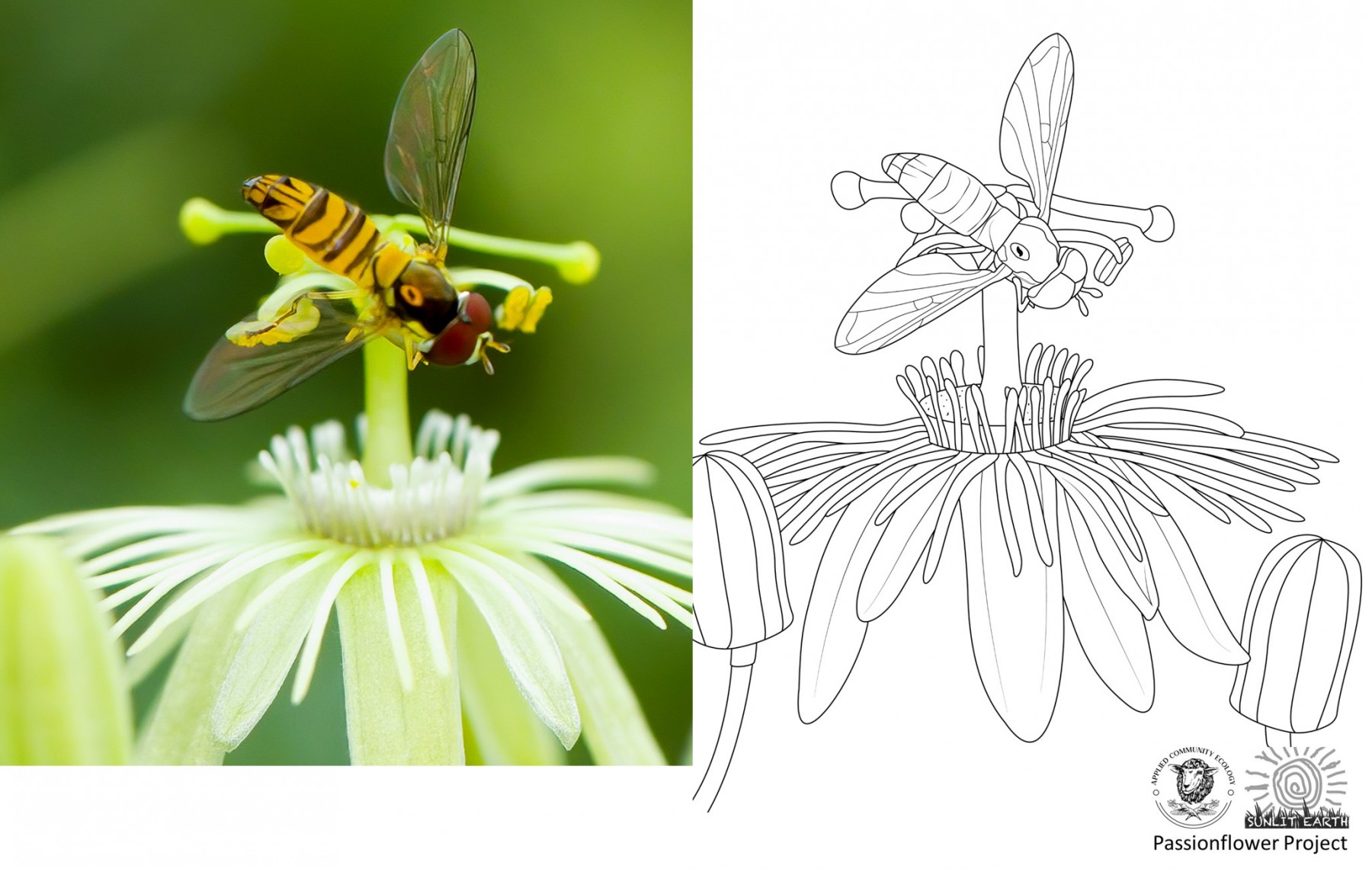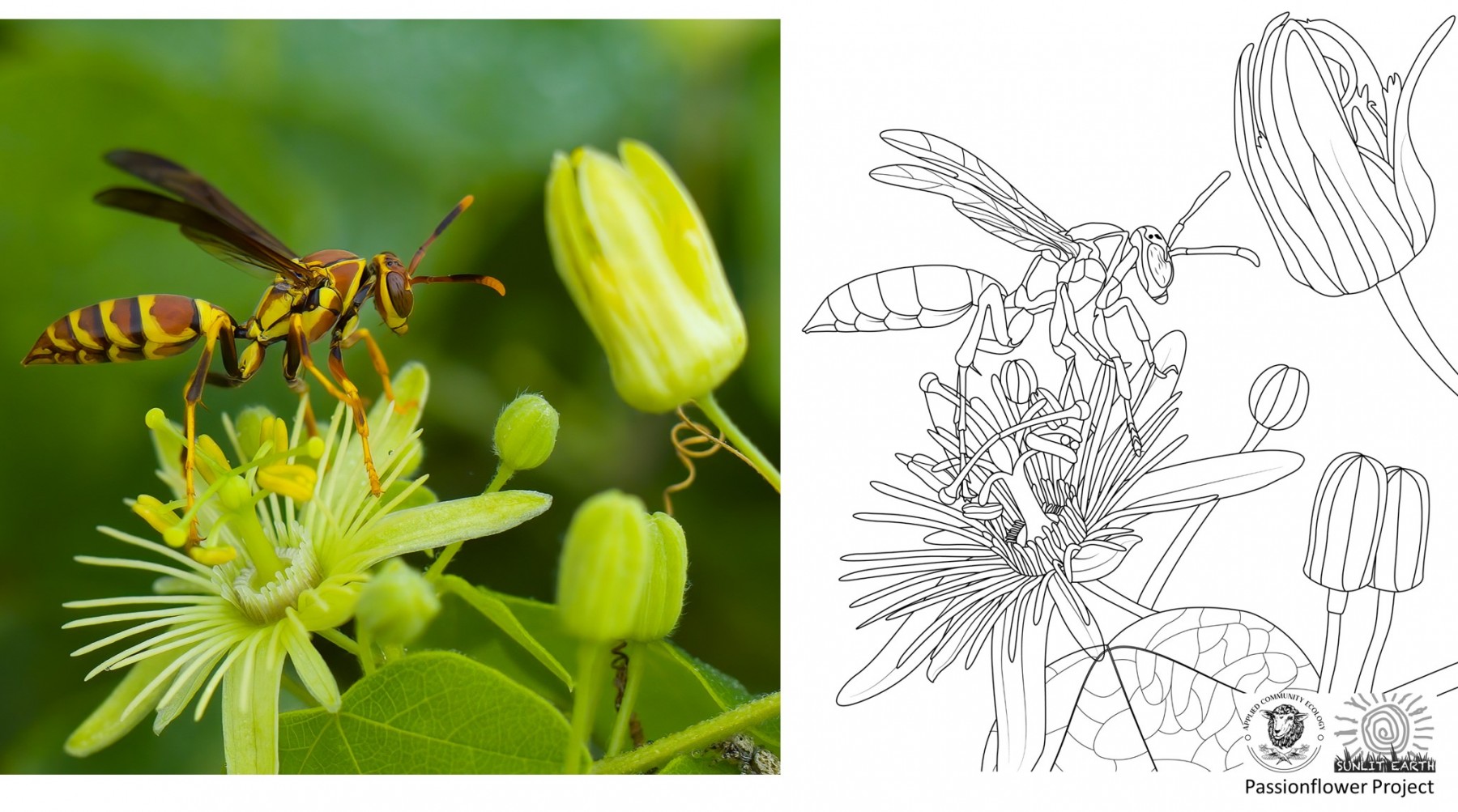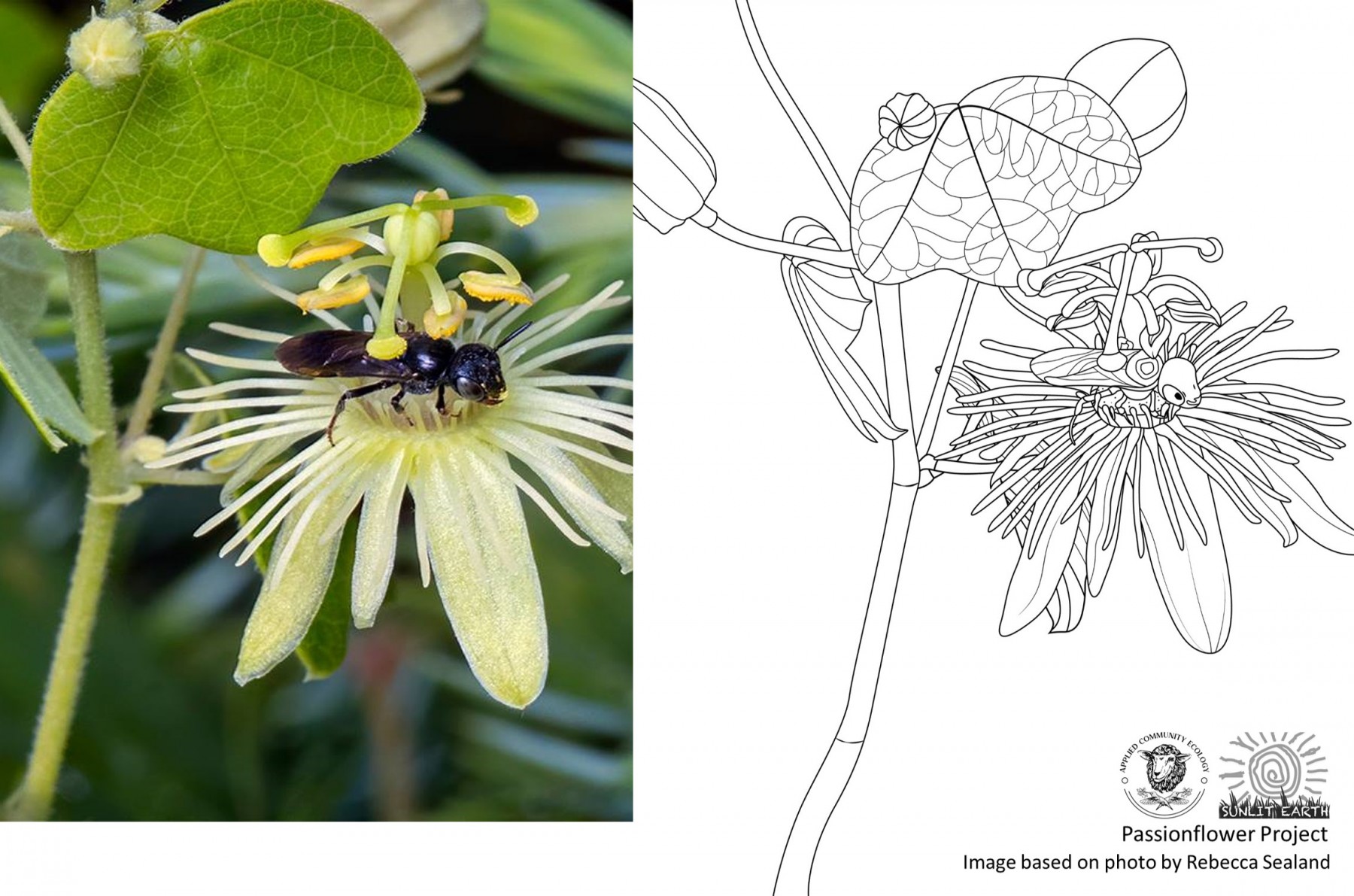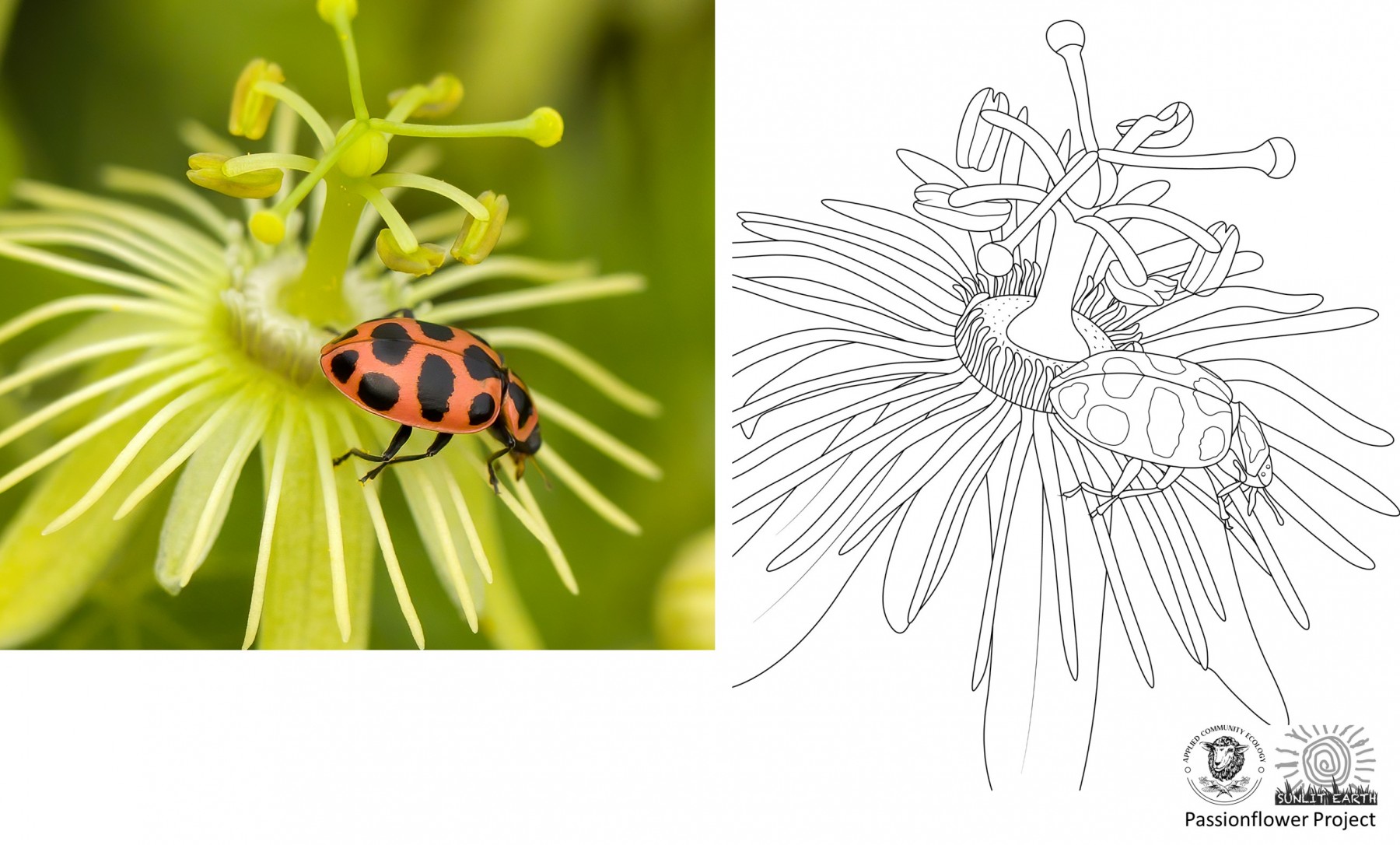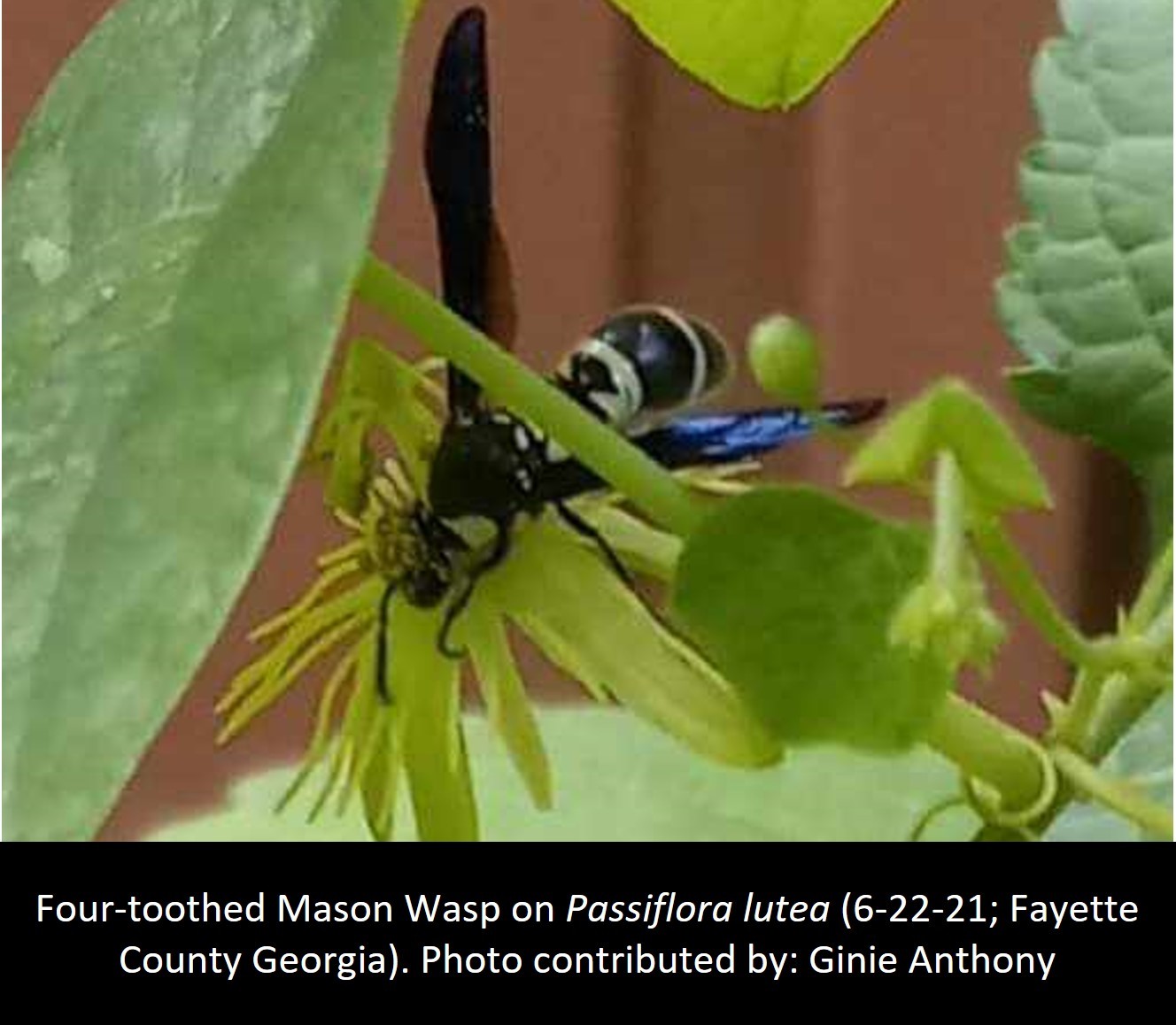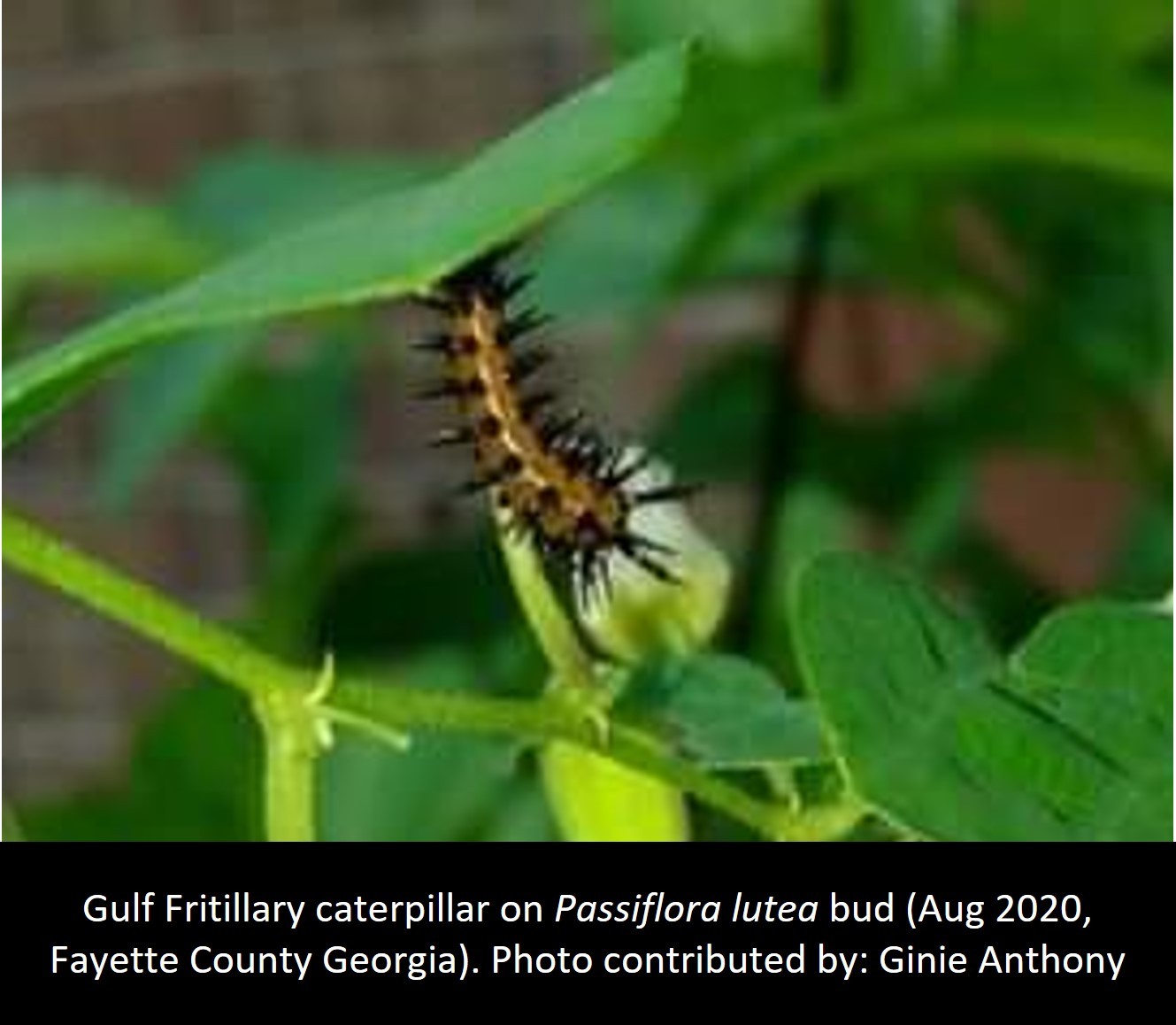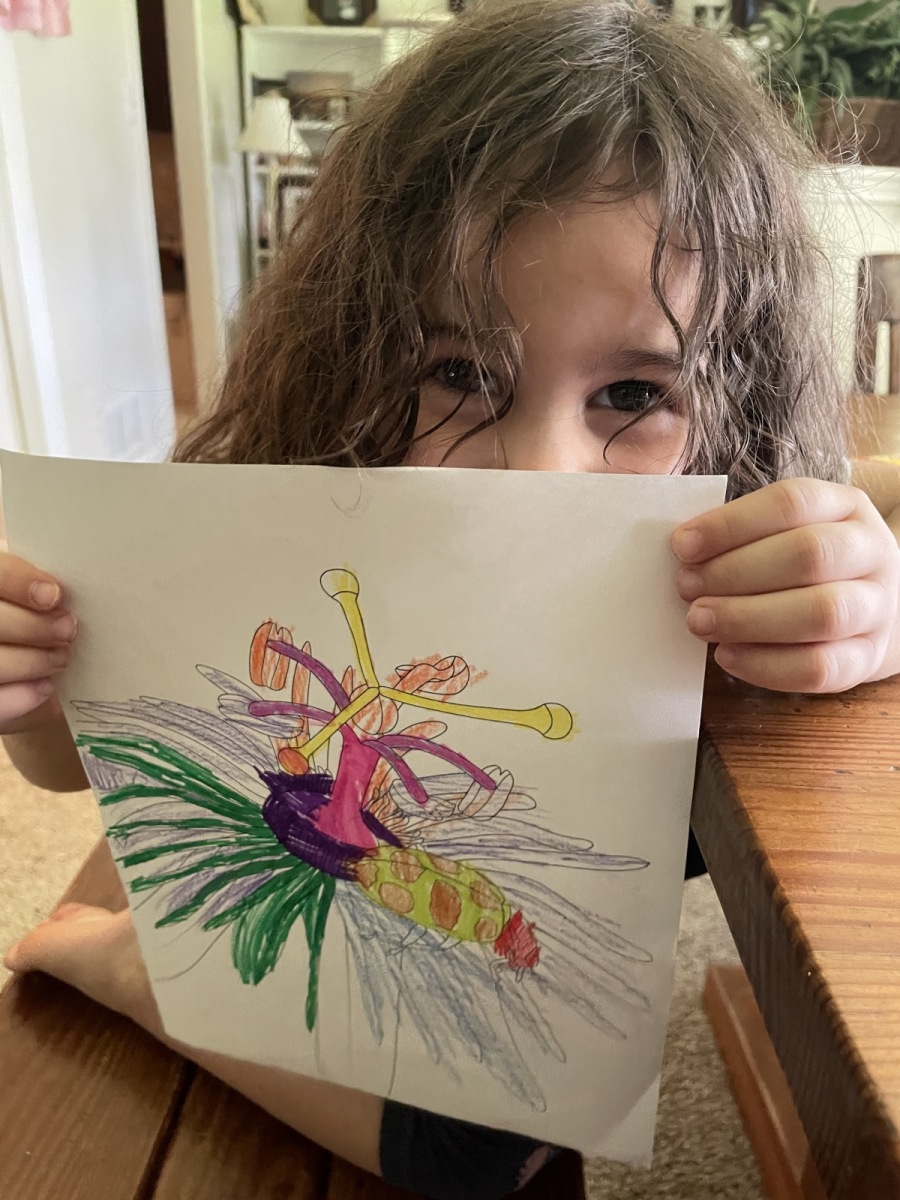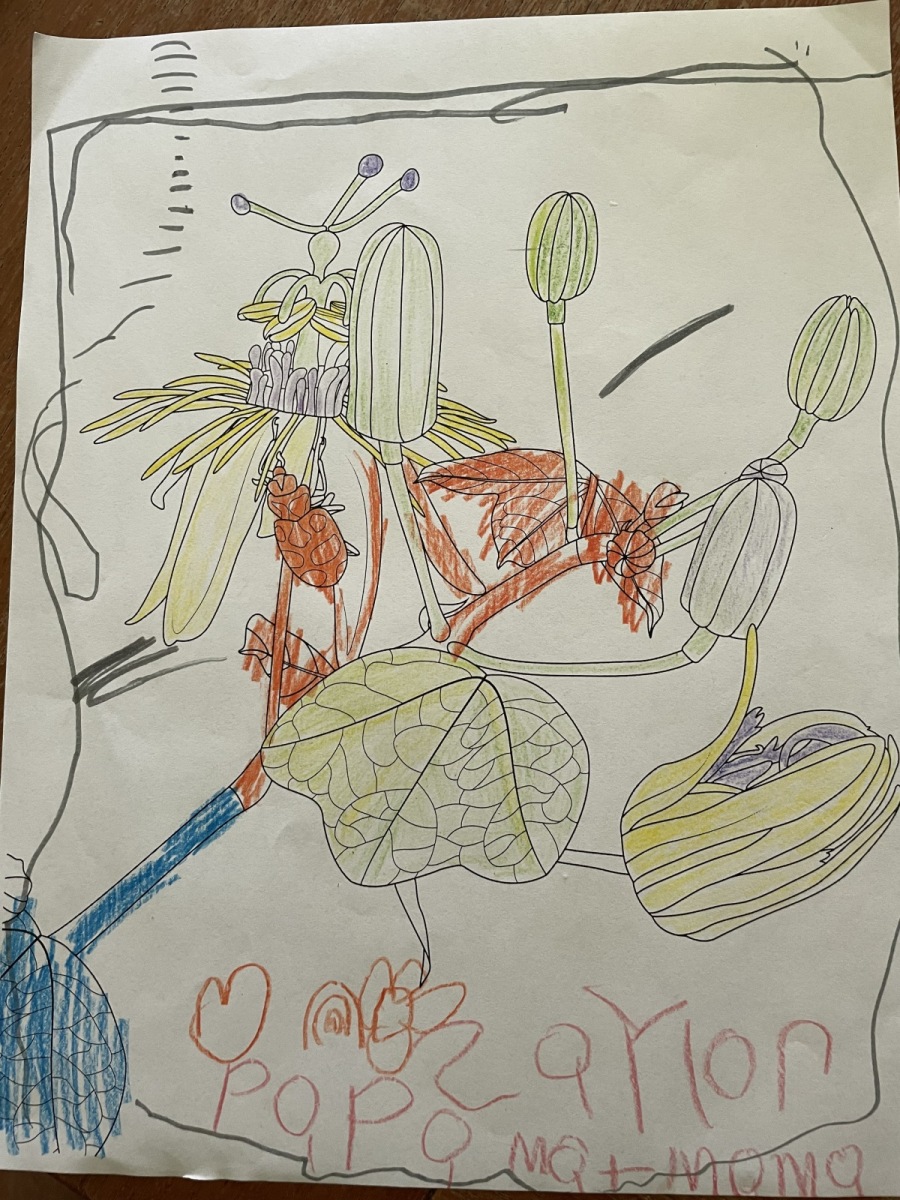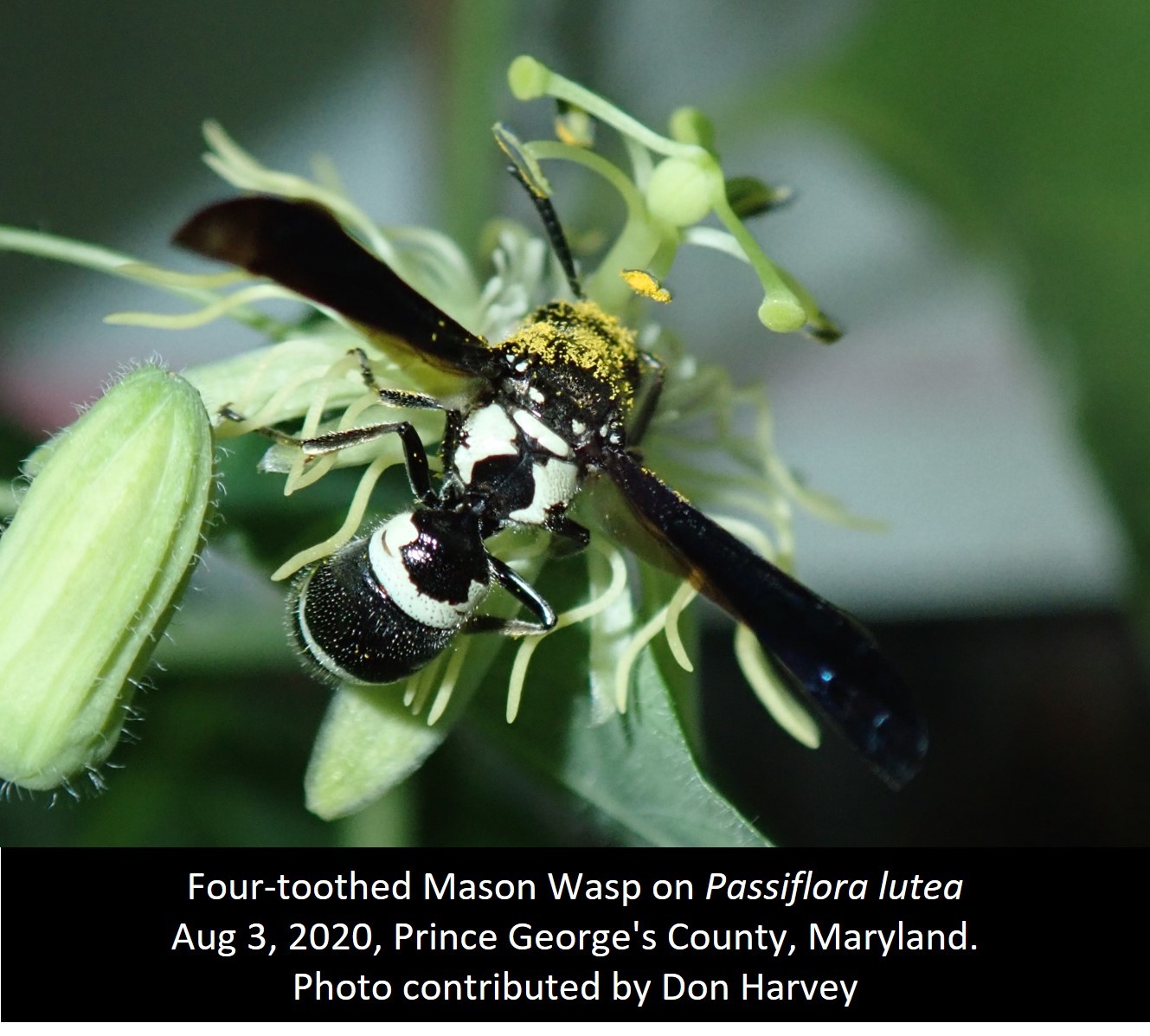The Passionflower Bee Project
Can you find the Passionflower bee?
The yellow passion flower (Passiflora lutea) is a beautiful plant native to the Southeast. Each flower blooms only for a single day. It is supports many pollinators, and is the only known host plant for the “Passionflower bee” (Anthemurgus passiflorae), a poorly documented native ground-nesting bee that was only recently reported in Georgia for the first time. In partnership with Sunlit Earth!, we are working with the scientific community to confirm these observations, and are inviting the public to help us learn more about this plant through photography and art. The purpose of this project to learn more about this plant, the passionflower bee, and how we can incorporate the ecosystem they support into our modern lives.
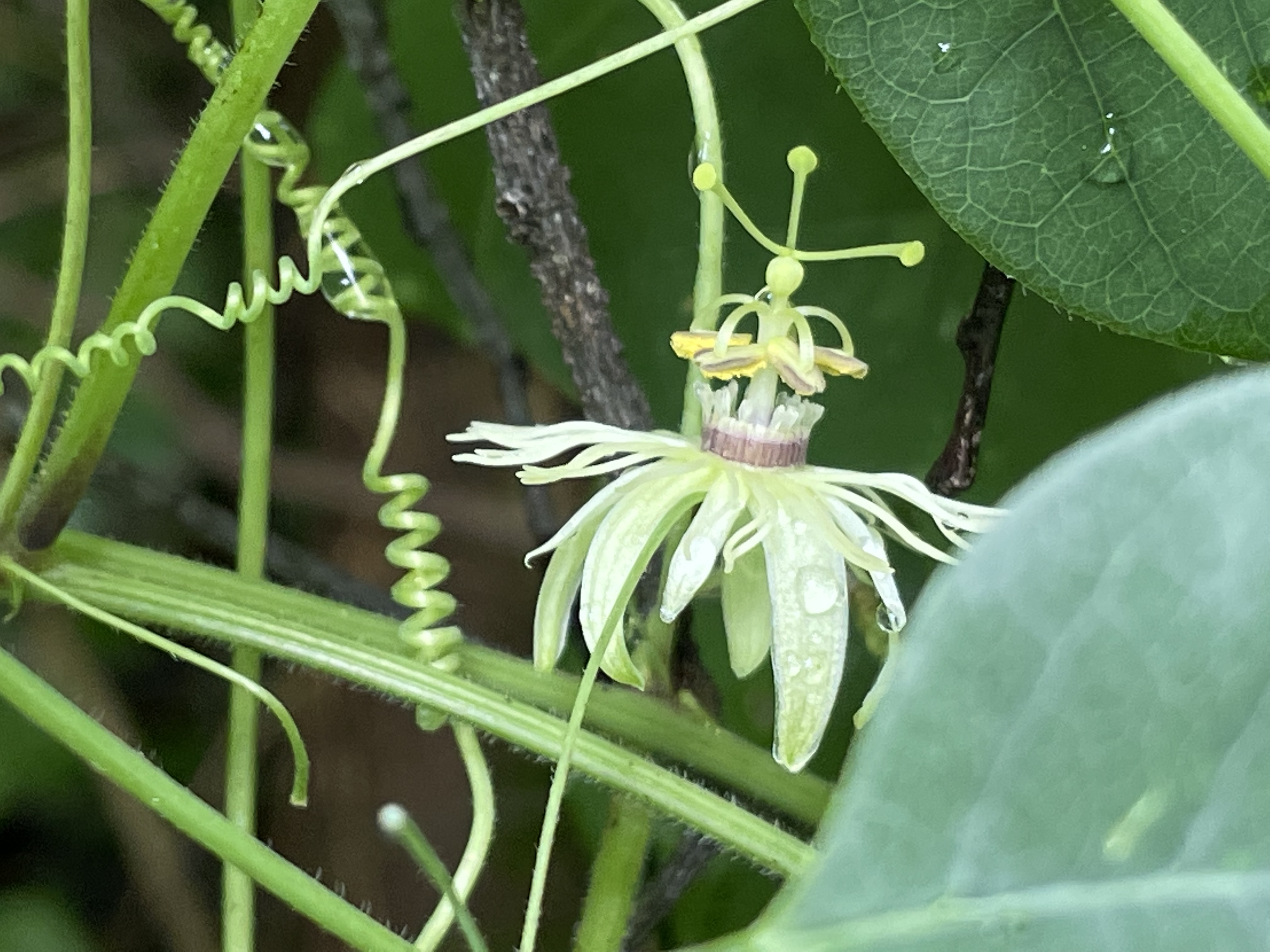
Yellow Passion flower
(Passiflora lutea)
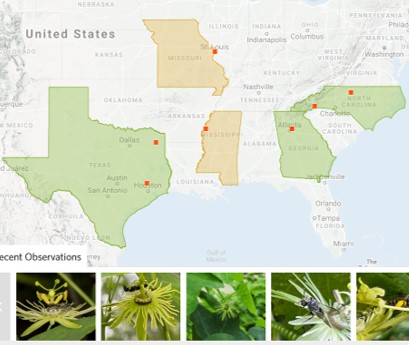
The passionflower bee (Anthemurgus passiflorae) has only been reported on iNaturalist in a few locations across the USA. Will you help us find it?
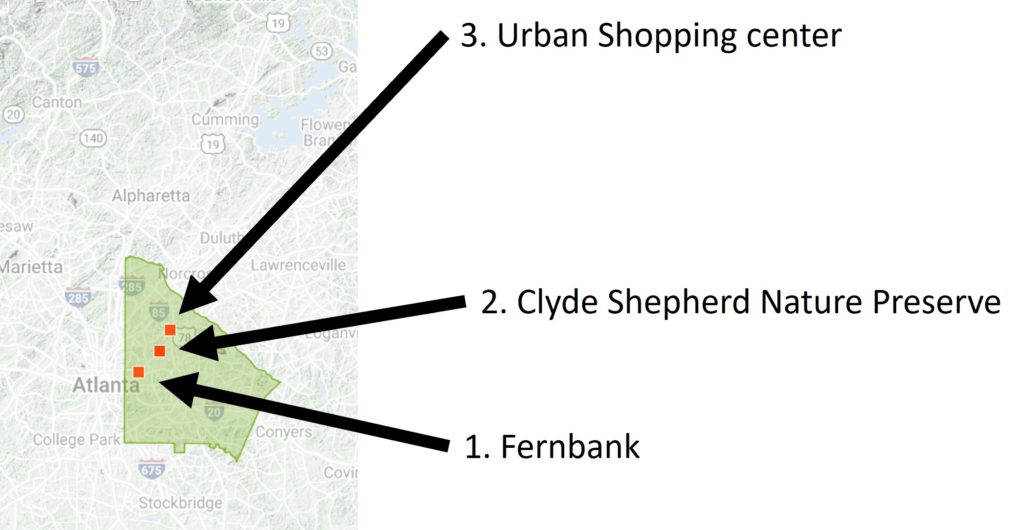
It was recently reported in GA in these 3 Atlanta locations. Applied Community Ecology is working with the scientific community to confirm these reports and search for new locations it may be found
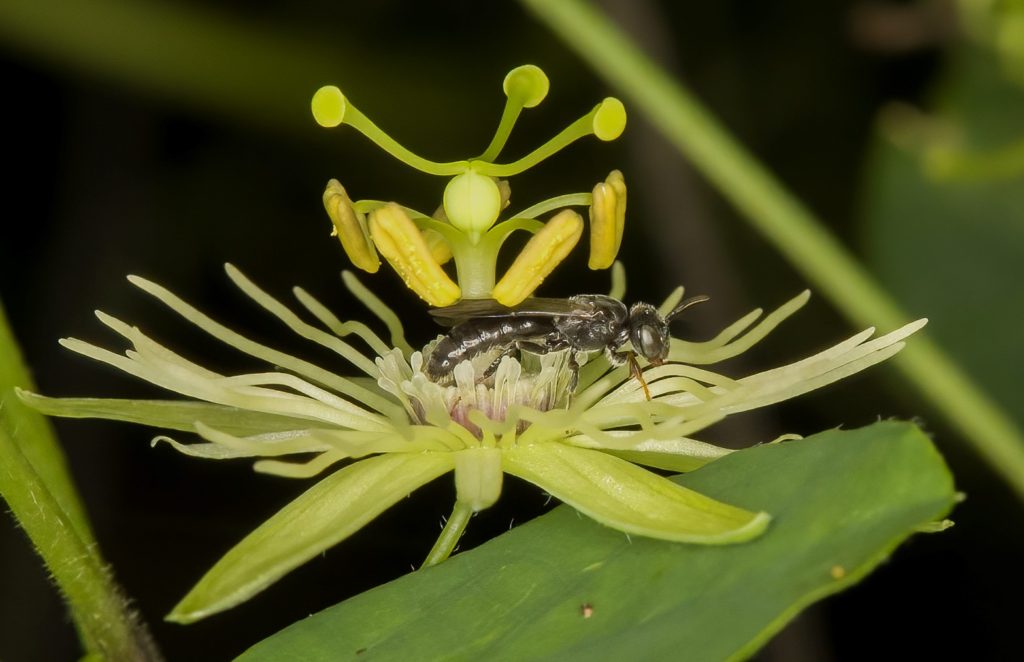
It is the only species of its genus and remains poorly understood. Scientist are actively studying this bee, its unique biology and its value as a pollinator
Photo credit: Stephen Ramsden (Sunlit Earth!)
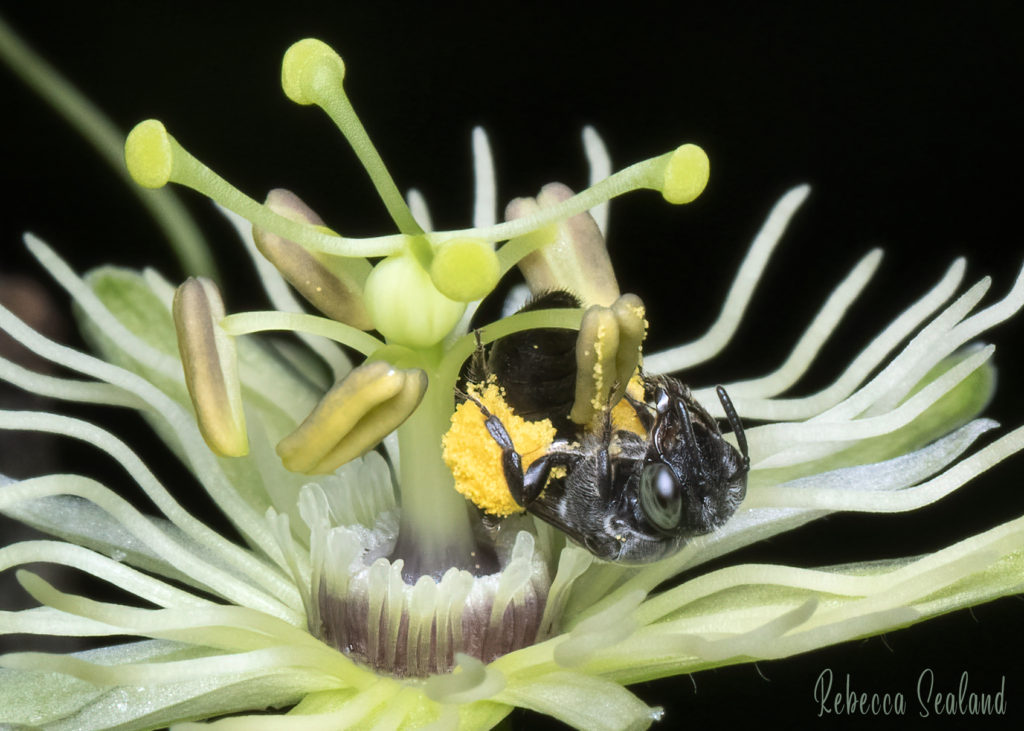
“The pollen extraction technique of Anthemurgus, scraping the anther thecae with its mandibles, is unusual among andrenids.”
-Dr. Jack Neff, Central Texas Melittological Institute
Photo Credit: Rebecca Sealand
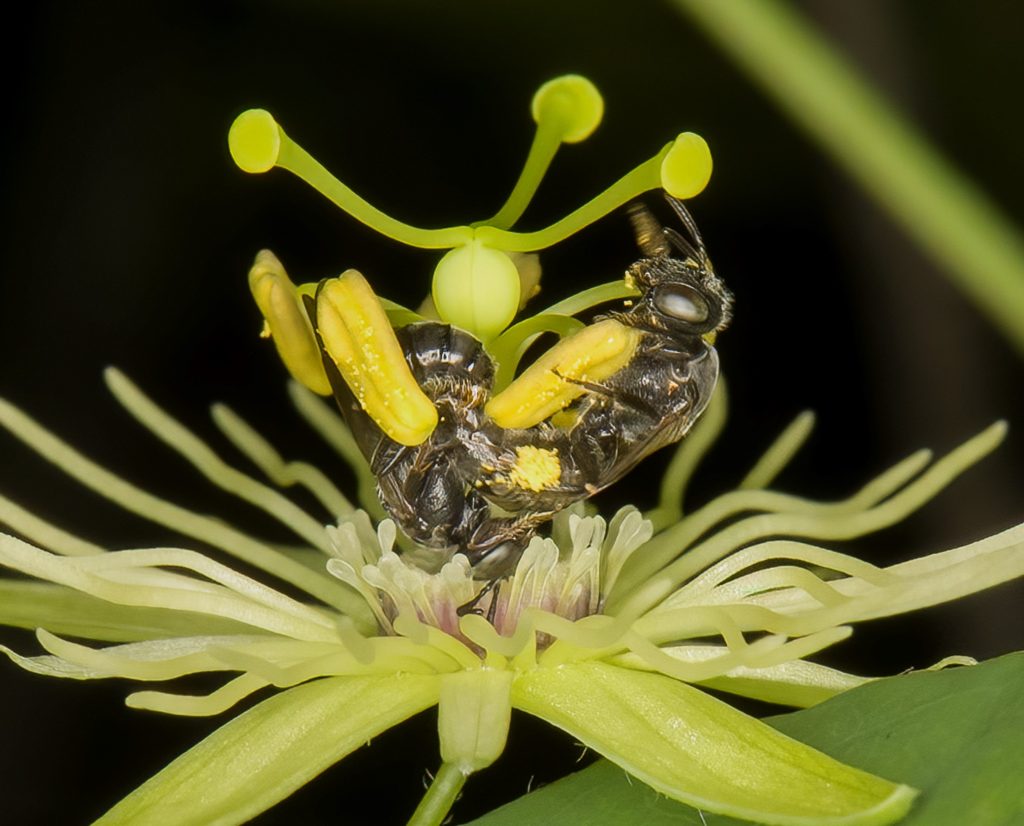
The passionflower bee is often seen in pairs, this provides a behavioral cue that you may have found the right bee!
Photo credit: Stephen Ramsden (Sunlit Earth!)
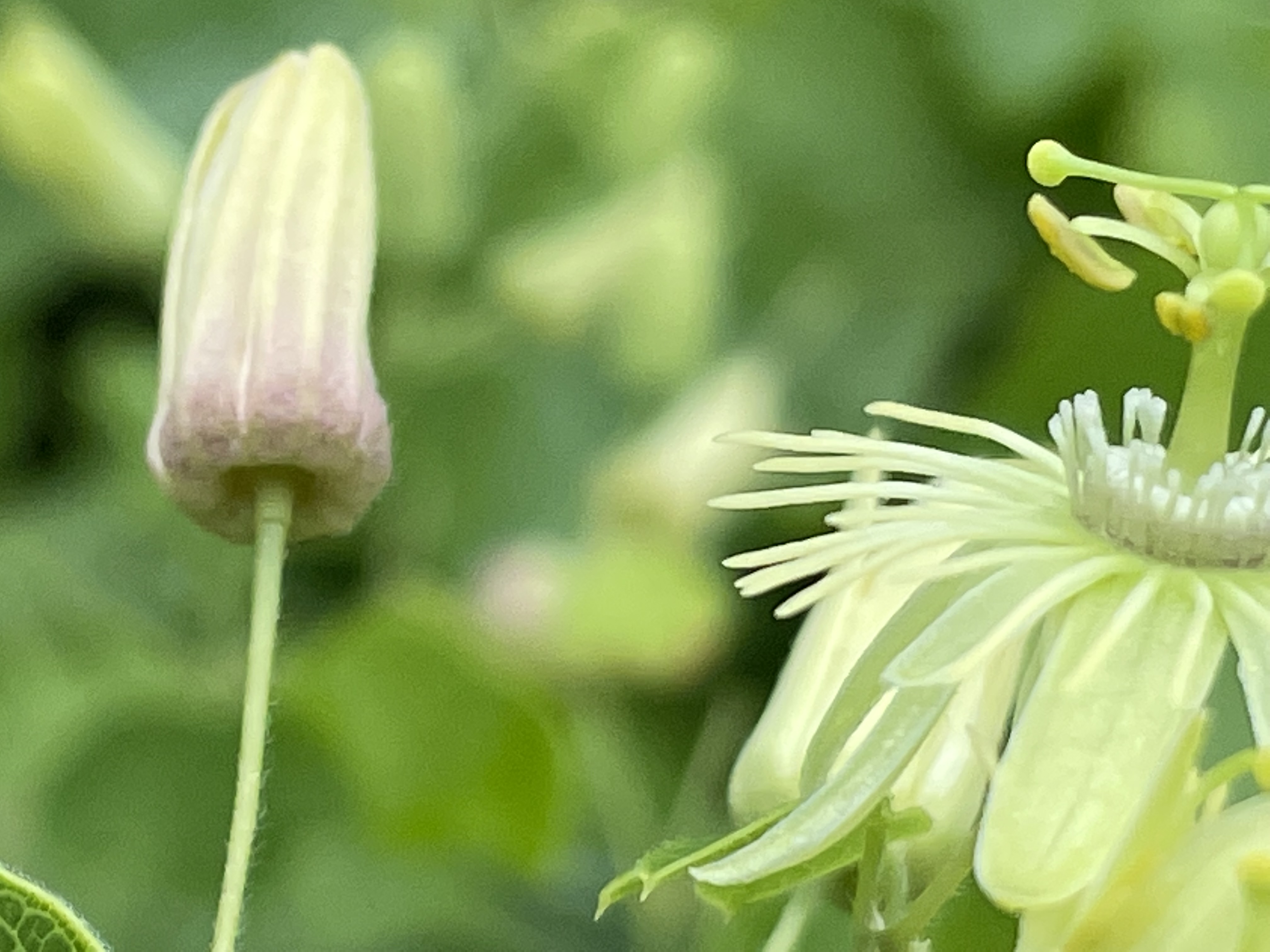
The best way to find the passionflower bee is to look for its host plant! The flowers open around 7-8 AM, and the passionflower bee can be found collecting pollen between 9AM – 1PM.
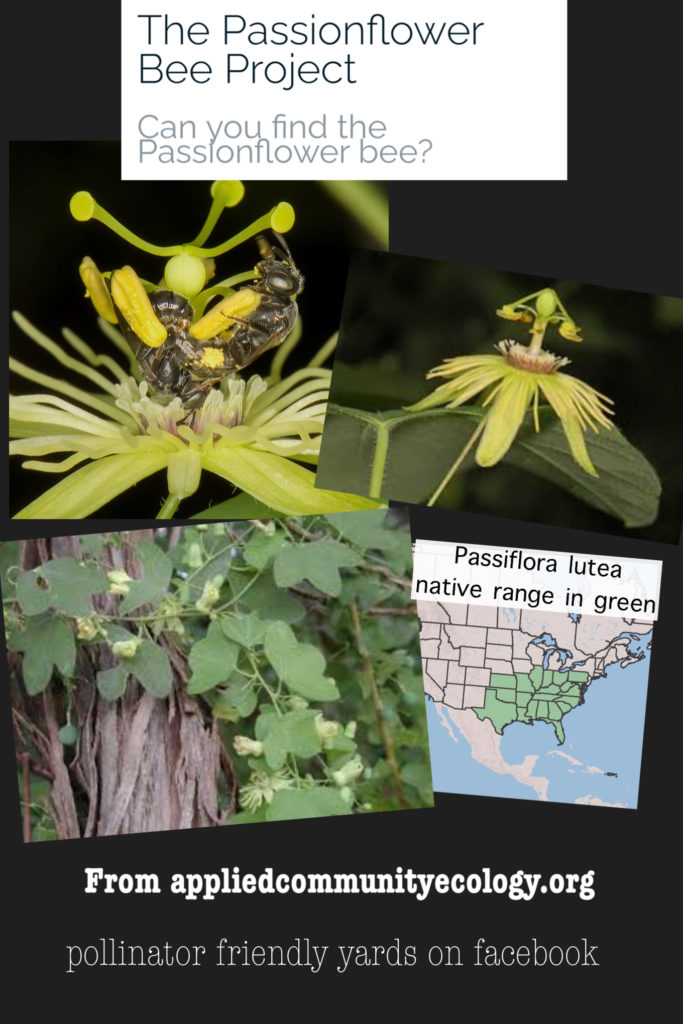
Sharing why native plants are the solution with Pollinator Friendly Yards on Facebook
What bugs do you see visiting passionflower? This project is fun because we are learning together as a community! Let us know what visitors you see on the yellow-passionflower by sending pictures to appliedcommunityecology@gmail.com
Coloring pages are a fun and easy way we can bring nature back into our lives. We’ve developed coloring pages based on the images submitted to this project. These coloring pages are biologically accurate and freely available. In addition to being a fun family activities, these images can be helpful in a variety of educational settings or at restaurants and coffee shops.
coloring-pagesSlide show of contributions to the project!
